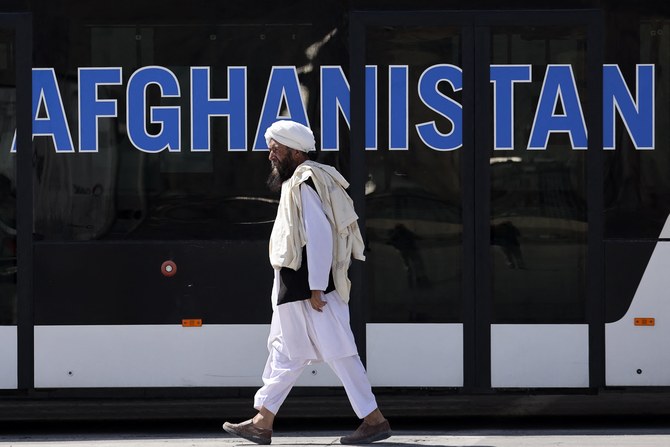ISLAMABAD: Pakistan’s Ambassador to the United States Asad Majeed Khan on Tuesday said that Islamabad was monitoring the Taliban government’s ability to fulfill promises and respond to rights’ concerns in Afghanistan.
Over the past few weeks, United Nations officials and rights groups have noted a surge in human rights violations in Afghanistan.
UN High Commissioner for Human Rights Michelle Bachelet said on Monday Afghanistan’s Taliban rulers had contradicted public promises on rights, including by ordering women to stay at home, blocking teenage girls from school and holding house-to-house searches for former foes. She said the country was in a “new and perilous phase,” with many women and members of ethnic and religious communities deeply worried.
Pakistan wants human and women’s rights to be preserved under the new Afghan government, Ambassador Khan told Washington Diplomat in an interview on Tuesday.
“We have not recognized the Taliban government,” he said. “No country has formally recognized it, but we are monitoring the ability of the new government in Afghanistan to respond to the concerns of the international community, and to deliver on the commitments and promises that they have been making over a period of time.”
To a question about Pakistan-US ties, Ambassador Khan said they had always been “important” and “critical” for Islamabad.
“Obviously, since 9/11, we have been essentially through the prism of Afghanistan. I can tell you that today, we are together on the same side in terms of our interests and expectations in Afghanistan,” he said.
“The United States wants to see the conflict end; that’s also what we want. And we would like to see that the gains Afghanistan has made over the last few decades are preserved.”
Asked how would Pakistan’s friendship with China affect its relationship with US, the Pakistani diplomat said Islamabad didn’t want its relationship “to be seen through any prism, be it Afghanistan, India or China.”
“Yes, of course, our relations with China are close, but so is our relationship with the United States,” he replied. “As we speak, the US is the largest export destination for Pakistan, and our third largest source of remittances, around $3 billion a year.”
The statement by the Pakistani ambassador comes after US Secretary of State Antony Blinken said Washington would reassess its ties with Pakistan over Afghanistan’s future.
In the first public hearing in Congress about Afghanistan since the fall of Kabul, Blinken told the House of Representatives Foreign Affairs Committee that Pakistan has a “multiplicity of interests some that are in conflict with ours.”
“It is one that is involved hedging its bets constantly about the future of Afghanistan, it’s one that’s involved harboring members of the Taliban ... It is one that’s also involved in different points cooperation with us on counterterrorism,” he said.
The US would be looking at its relationship with Pakistan in the coming weeks to formulate what role Washington would want it play in the future of Afghanistan, Blinken said.
















